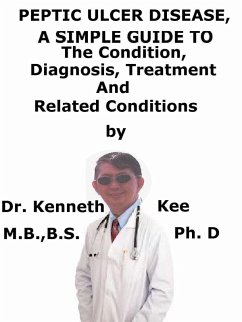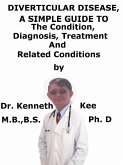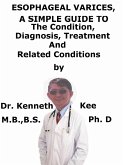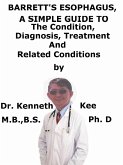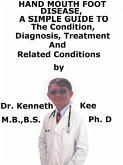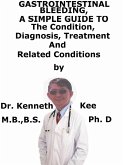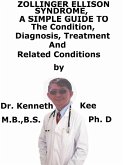Peptic ulcers are common in people who are stressed or do not take regular meals.
They also occur in people who take pain killers such as non-steroidal anti-inflammatory medicines or steroids and hormones.
In the past (refer my book A Family Doctor's Tale on milk drip) a fast cure for acute episode of peptic ulcer pain is the milk drip. Provided the patient does not have lactose tolerance a milk drip into the stomach of these patients will stop the pain within 1 day because of the constant drip of alkaline milk and lactobacillus into the stomach to counter the acid and H. pylori bacteria in the stomach and duodenum.
With the advent of H2 antagonist and Proton pump inhibitor treatment with these new drugs appears to work better than the milk drip.
They just depend on these drugs to counter their acids and peptic ulcers.
Peptic ulcer is a medical disorder with an open sore or raw area in the lining of the stomach or duodenum.
A gastric ulcer is present in the stomach.
A duodenal ulcer is present in the first part of the small intestine.
Normally, the lining of the stomach and small intestines can protect itself against strong stomach acids by producing a mucous film on the inner lining of the stomach or duodenum.
But if the inner lining breaks down, the result may be:
1. Swollen and inflamed tissue, called (gastritis)
2. A peptic ulcer
Most ulcers occur in the first layer of the inner lining of stomach or duodenum.
The ulcer can form a hole that goes through the stomach or duodenum lining is called a perforation.
A peptic ulcer perforation is a medical emergency.
The two main causes are
1. Helicobacter pylori infection - this bacterium injures the protective lining of the stomach making the underlying stomach tissue more prone to attack by the acidic gastric juice.
The most frequent cause of peptic ulcers is infection of the stomach by bacteria called Helicobacter pylori (H. pylori).
Helicobacter pylori infection is linked to about 95% of duodenal ulcers and 80% of gastric ulcers.
Most people with peptic ulcers have these bacteria growing in their digestive tract.
Many people who have these bacteria in their stomach do not form an ulcer.
2. Extra production of acidic gastric juice
Excessive secretion of the acidic gastric juice can burn into the protective lining of the stomach and induce inflammation of the underlying unprotected stomach tissue.
The factors for excessive production of acidic gastric juice are:
a. Most frequent is stress and anxiety which automatically raise the production of the acid as a response to sympathetic nervous reaction
b. Hereditary
Some gastric ulcer patient has a family history of gastric problem.
Blood group O tends to have more gastritis while Blood group A tends towards stomach cancer.
c. Irregular meals tend to produce more acidic gastric juice at regular meal time.
d. Alcohol and smoking has been linked with higher acid formation
e. Drugs:
Long term use of non-steroidal anti-inflammatory drugs (NSAIDs) such as aspirin or ibuprofen can irritate the inner lining of the stomach or induce bleeding.
Most gastric ulcers happen on the lining of the lesser curvature of the stomach while duodenal ulcers happen on the first part of the duodenum
These factors raise the risk for peptic ulcers:
a. Excessive drinking of too much alcohol
b. Regular use of aspirin, ibuprofen, naproxen, or other non-steroidal anti-inflammatory drugs (NSAIDs). Being given aspirin or NSAIDs once in a while is safe for most people.
c. Smoking cigarettes or chewing tobacco
d. Severe illness, such as being on a breathing machine
e. Having radiation treatments
TABLE OF CONTENT
Introduction
Chapter 1 Peptic Ulcer Disease
Chapter 2 Causes
Chapter 3 Symptoms
Chapter 4 Diagnosis
Chapter 5 Treatment
Chapter 6 Prognosis...
Dieser Download kann aus rechtlichen Gründen nur mit Rechnungsadresse in A, B, CY, CZ, D, DK, EW, E, FIN, F, GR, H, IRL, I, LT, L, LR, M, NL, PL, P, R, S, SLO, SK ausgeliefert werden.

